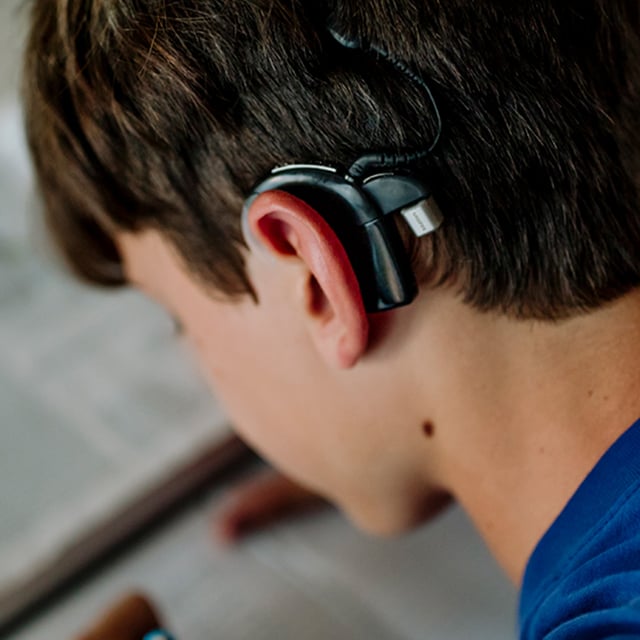Many people have questions about cochlear implants, how they work and what to expect from the surgery. Here are some common questions and answers.
- Will a cochlear implant restore normal hearing for people who are deaf?
- Are cochlear implants experimental devices?
- Are there risks in cochlear implant surgery?
- Will I need more surgery as new technology becomes available?
- Will my child outgrow the internal device and require a new one?
- Should I wait for new cochlear implant technology?
- Can implant users identify environmental noises as well as speech?
- Can implant users swim, shower or participate in sports?
Will a cochlear implant restore normal hearing for people who are deaf?
No, a cochlear implant does not restore normal hearing. It is a communication tool but not a "cure" for deafness. When hearing functions normally, parts of the inner ear convert sound waves into electrical impulses. These impulses are sent to the brain, where they are recognized as sound. A cochlear implant simulates that process. An implant, supplemented with listening therapy, can help people recognize sound, including speech.
Are cochlear implants experimental devices?
Cochlear implants have been used since the 1970s and several devices are currently approved by the federal Food and Drug Administration (FDA) for use in children and adults.
Are there risks in cochlear implant surgery?
Risk is inherent in any surgery requiring general anesthesia. However, the surgical risks for cochlear implantation are minimal and most patients require only a one-day hospital stay and have no surgical complications.
Will I need more surgery as new technology becomes available?
The implanted unit is designed to last a lifetime. The externally worn speech processor, which is responsible for converting sound into code and sending the information to an internal unit, is dependent on software that can be upgraded as technology improves.
Will my child outgrow the internal device and require a new one?
No, the cochlea is fully formed at birth and the skull structures achieve almost full growth by age 2. The electrode array is designed to accommodate skull growth in children.
Should I wait for new cochlear implant technology?
No, the design of the surgically implanted receiver and electrode array has changed relatively little during the history of cochlear implants. However, speech-coding strategies, which are responsible for delivering the signal to the internal unit and are stored in the externally worn speech processor, have improved significantly over the years. The speech processor can incorporate new technology when available.
Can people with cochlear implants identify environmental noises as well as speech?
Cochlear implants provide a wide range of sound information. Performance in speech perception testing varies among individuals. With time and training, most patients understand more speech than with hearing aids and many communicate by telephone or enjoy music.
Can people with cochlear implants swim, shower and participate in sports?
Yes, people with implants can swim, shower and participate in virtually all types of sport activities when they are not wearing the external equipment. The only restriction relates to skydiving and scuba diving because significant changes in air pressure are not advised. Participation in all other athletic activities is unrestricted, although protective headgear is always recommended.































